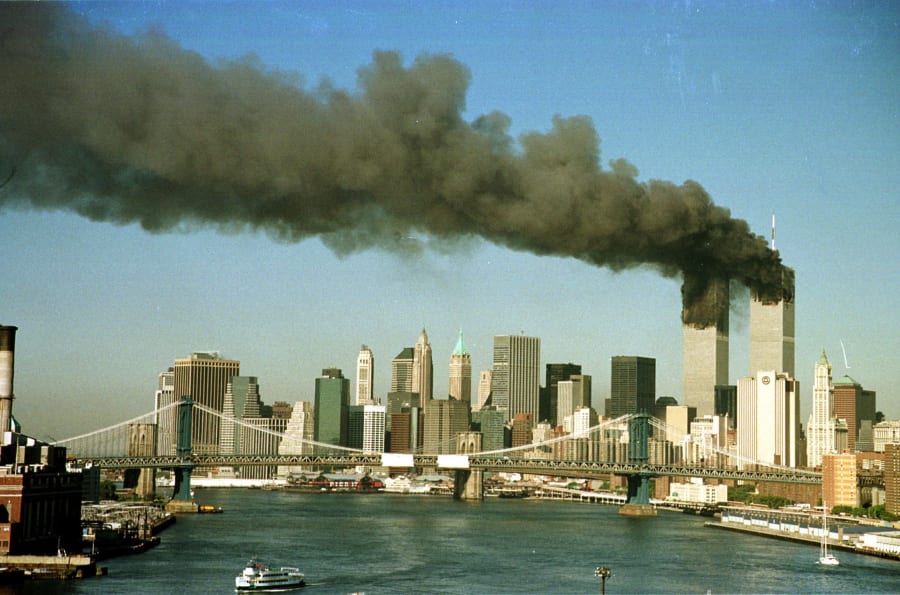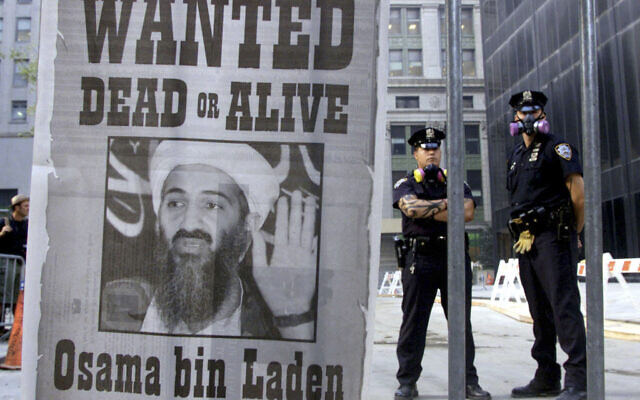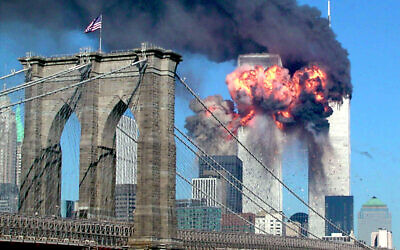So long after 9/11, why are we still at war with "Radical Islam"? Just how many radicals are there? Here's the latest.

The wicked attacks by Osama bin Laden and his al Qaeda terrorist organization against the United States on Sept. 11, 2001, set into motion a global war against the forces of what many call “radical Islam.”
Many people around the world find themselves stunned that after so much military activity for so long aimed at neutralizing the threat of these radicals, that the fight is not yet over.
How in the world is that possible? How have we not won this war already? they ask.
To understand the answer, we must ask a more fundamental question: Just how many violent or “radical” Muslims are out there?
Over the past two decades, extensive research has been conducted to answer this question. Let's take a look.
Since Sept. 11, 2001, for example, the Pew Research Center, the Gallup organization, the Washington Institute for Near East Policy and other reputable organizations have conducted ongoing polling throughout the Middle East, North Africa and Asia.
Their goals? To better understand the attitudes of Muslims regarding a wide range of political and religious subjects, including their support for using violence against innocent civilians to achieve their ends.
The good news is that a careful analysis of the voluminous data suggests that the vast majority of Muslims – upwards of 90 percent – do not support violence against civilians to advance their religious beliefs or political objectives.
Thus, it is both accurate and fair to say that the vast, vast majority of Muslims are not “radical Islamists.”
The bad news, however, is that the data consistently indicate that between 7 and 10 percent percent of Muslims worldwide can be characterized as having radical views.
 Police stand near a wanted poster of Saudi-born militant Osama bin Laden, printed by a New York newspaper, in New York in this Sept. 18, 2001 file photog. Al Qaeda leader Osama bin Laden was killed in a firefight with U.S. forces in Pakistan on May 1, 2011, ending a nearly 10-year worldwide hunt for the mastermind of the Sept. 11 attacks. (Photo credit: REUTERS/Russell Boyce/Files)
Police stand near a wanted poster of Saudi-born militant Osama bin Laden, printed by a New York newspaper, in New York in this Sept. 18, 2001 file photog. Al Qaeda leader Osama bin Laden was killed in a firefight with U.S. forces in Pakistan on May 1, 2011, ending a nearly 10-year worldwide hunt for the mastermind of the Sept. 11 attacks. (Photo credit: REUTERS/Russell Boyce/Files)That is, roughly one-in-ten Muslims openly tell pollsters that they support the brutal violence of al Qaeda or the Islamic State or other terrorist states or groups, including the use of suicide bombings against innocent civilian targets to advance their political and religious objectives.
At first glance, 7 to 10 percent may not seem like a lot.
Yet in a world of some 1.8 billion Muslims, this means that upwards of 126 million to 180 million people could be characterized as followers of “Radical Islamism.”
These are enormous numbers.
Imagine if they were to form their own country, the “Islamic Republic of Radicalstan,” for example. It would be the ninth largest country in the world, with nearly 50 million more people than the Russian Federation and roughly half the population of the United States.
To be sure, not all who hold these extreme views will necessarily become engaged in violent activities. However, this is the pool from which radical Islamist terrorist organizations and states raise funds and recruit new members.
This is why so long after 9/11 – and with all the fighting that has been done in Afghanistan, Iraq, Syria, Libya, Yemen and elsewhere – that the radicals just keep on coming.
 The second tower of the World Trade Center bursts into flames after being hit by a hijacked airplane in New York in this Sept. 11, 2001 file photograph. (Photo credit: REUTERS/Sara K. Schwittek/Files)
The second tower of the World Trade Center bursts into flames after being hit by a hijacked airplane in New York in this Sept. 11, 2001 file photograph. (Photo credit: REUTERS/Sara K. Schwittek/Files)The pool from which our mortal enemies are recruiting is very sizable, indeed.
It should be noted that historically, among Muslims in the Middle East, there has tended to be more public support for the use of violence if the target is specifically Israel.
Thus, polls have often indicated more public support in the Islamic world for Iran and terrorist organizations such as Hamas and Hezbollah.
That said, favorable views of Iran throughout the Middle East have actually plunged in recent years.
Favorable views of Iranian allies and proxy groups such as Hamas have also declined in recent years, while favorable views of Hezbollah have declined significantly, as well, particularly among Sunnis in the United Arab Emirates, Saudi Arabia, Jordan, Egypt, Kuwait and Lebanon (though Shias generally see Hezbollah more positively).
One trend that is particularly noteworthy is how Muslim support for using violence against civilians to achieve political ends drops significantly in countries where high levels of Radical Islamist violence occurs.
That is, polling shows that there was a time in numerous Muslim-majority countries when suicide attacks were theoretically acceptable to large numbers of Muslims.
Yet polls taken after suicide bombings began happening in those same countries – when ordinary Muslim citizens could see for themselves the real-world human pain and suffering and economic repercussions of these attacks by Radicals, support for suicide attacks drop precipitously.
Consider some examples:
- In 2002, 43 percent of Jordanians supported suicide bombing as a legitimate act. By 2005, that number had actually climbed to 57 percent. However, after a series of such bombings occurred in the capital of Amman in 2005 by terrorists led by Abu Musab al-Zarqawi (the Jordanian-born leader of al Qaeda in Iraq, which later rebranded itself as ISIS), support began to fall sharply. By 2014, only 15 percent of Jordanians supported the use of suicide bombings to achieve political ends.
- In 2002, a whopping 73 percent of Lebanese supported suicide bombing as a legitimate act. By 2014, however, in the aftermath of the assassination of the widely-beloved Lebanese Prime Minister Rafic Hariri by Hezbollah operatives, that number had fallen to 29 percent.
- In 2004, support in Pakistan for suicide bombings was at an all-time high of 41percent. By 2014, however, that number had dropped to only 3percent.
- In Nigeria, support has fallen from a high of 34 percent in 2010 to 19% in 2014.
- Interesting, in Iraq – which has been plagued by suicide bombings as much as any country in history – only 7 percent of the population support these acts as morally legitimate. Fully 91 percent of Iraqis oppose suicide attacks.
- “The 2017-2018 Arab Opinion Index is based on the findings from face-to-face interviews conducted with 18,830 individual respondents in 11 separate Arab countries: Saudi Arabia, Kuwait, Iraq, Jordan, Palestine, Lebanon, Egypt, Sudan, Tunisia, Morocco and Mauritania…. An overwhelming majority of 92% of the Arab public does have a negative view of ISIL [the Islamic State/ISIS], with 2 percent expressing a ‘positive’ view, and 3% ‘positive to some extent.’ Crucially, favorable views of ISIL were not correlated with religion: respondents who identified themselves as ‘Not religious’ were just as likely to have favorable views of ISIL as those who identified as ‘Very religious.’ Similarly, no relationship could be shown between respondents' opinions of ISIL and their views on the role of religion in the public sphere. In other words, public attitudes towards ISIL are defined by present-day political considerations and not motivated by religion.”
I'm encouraged to have met and befriended many courageous Muslim leaders who are doing just this -- but it is still not enough.
Sept. 11 will always be a reminder that the forces of peace and moderation can never rest, but must always be on the offense.

Joel C. Rosenberg is the editor-in-chief of ALL ISRAEL NEWS and ALL ARAB NEWS and the President and CEO of Near East Media. A New York Times best-selling author, Middle East analyst, and Evangelical leader, he lives in Jerusalem with his wife and sons.













